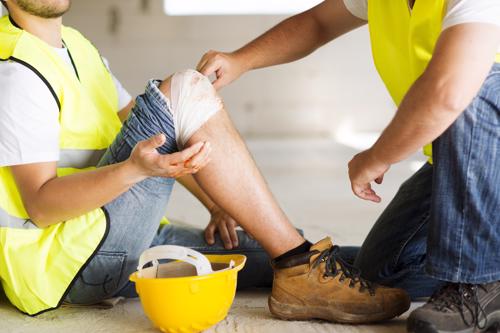Concussions are a common personal injury concern in children who play sports and children who play on playground equipment. Concussions are head injuries that can range from mild to severe and can affect both adults and children. It can occur with a temporary loss of consciousness or without this factor. In most cases, a cognitive disturbance is noticeable. Following are some of the most common symptoms of concussions:
- Headache
- Dizziness
- Nausea and/or Vomiting
- Confusion
- Fatigue
- Coordination Disturbance
Our Georgia personal injury lawyers see frequently deal with concussions caused by auto accidents, workplace accidents, and sports and playground equipment accidents. Any time something hits the head with force (or the head hits something with force), a concussion can happen.
Because concussions are so common in children who play sports, with almost 10% of child athletes being affected by at least one in a sports season, many states have passed laws to improve safety, inform parents, raise awareness, and prevent concussions where possible. Georgia was the 46th state to pass youth concussion laws.
Georgia’s Youth Concussion Law
Georgia based the youth concussion law on the regulations set forth by the NFL. There are three primary elements, which include providing a concussion information form to parents, ensuring that an injured athlete is quickly taken out of the game and treated, and preventing anyone with a concussion from returning to the game without their treating physician’s approval.
The concussion information form must be signed by the parents of student-athletes, and it provides information about head injuries and the risks associated with playing sports. The student cannot participate in the given sport without this information form signed.
Any student who shows any signs of a concussion must also be quickly removed from the field, whether it is a game, a practice session, or tryouts, and be provided with a physician’s evaluation right away. This ensures that concussions do not go undiagnosed.
Once a concussion has been diagnosed, the student cannot return to the game until a physician gives written approval to do so. This ensures that student-athletes have time to recover and are not put back in the game before they are ready, minimizing the likelihood of further injury.
Does This Law Apply to Your Student-Athlete?
You might assume that this youth concussion law applies to all student-athletes, and for the most part, it does. In any public school, charter school, or private school, Georgia’s youth concussion laws must be followed to the letter. Yet, if your student-athlete is active in sports at a public recreation facility, then the laws are not so strict. Such places are asked to remove anyone from the game if they have concussion symptoms, but the law does not strictly demand that they do this. As a parent, you should be on the lookout for the symptoms of a concussion, especially in public recreational facility sports to ensure that your child is properly cared for.
What Happens When Someone Violates The Law?
If the responsible adults at a child sports event, tryout, or practice session do not follow the youth concussion law, then they can be held liable for the concussion injury. If the school or public recreation facility does not provide the concussion information form to parents and require a signature for the child to participate, this is a violation of the law. If a coach does not remove a child from the game when concussion symptoms are present, then they are violating the law. If an examining doctor does not diagnose and/or treat the concussion, then this person can be held liable for violating the youth concussion law.
This means that anyone who violates the law is legally liable for the injury. If any of this sounds like your present situation with a student-athlete concussion, then you should contact a skilled Georgia personal injury attorney to find out about your options in pursuing a claim. The attorneys at The Law Office of John B. Jackson will provide a free consultation to help you determine if the youth concussion law was violated, who is liable for the violation, and what you can do about it.




